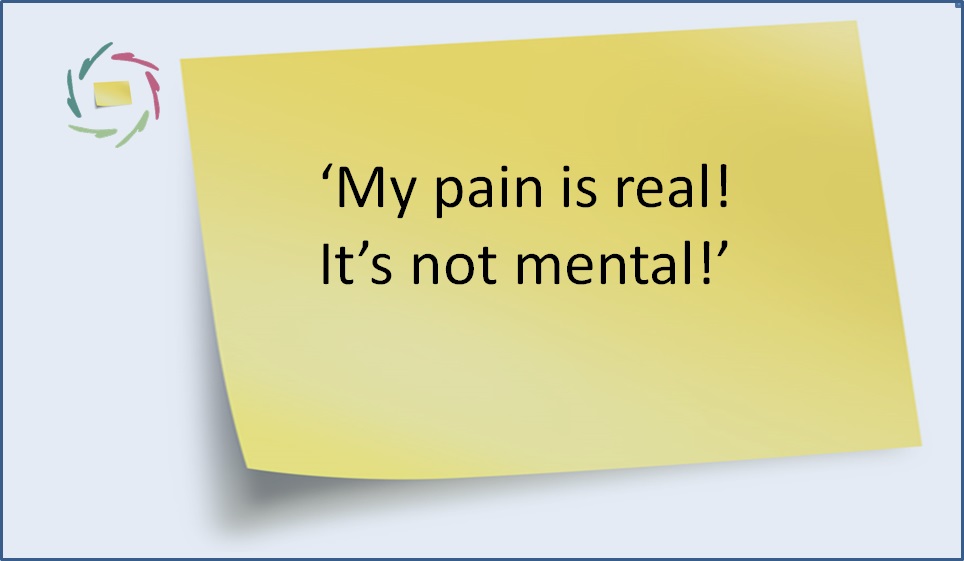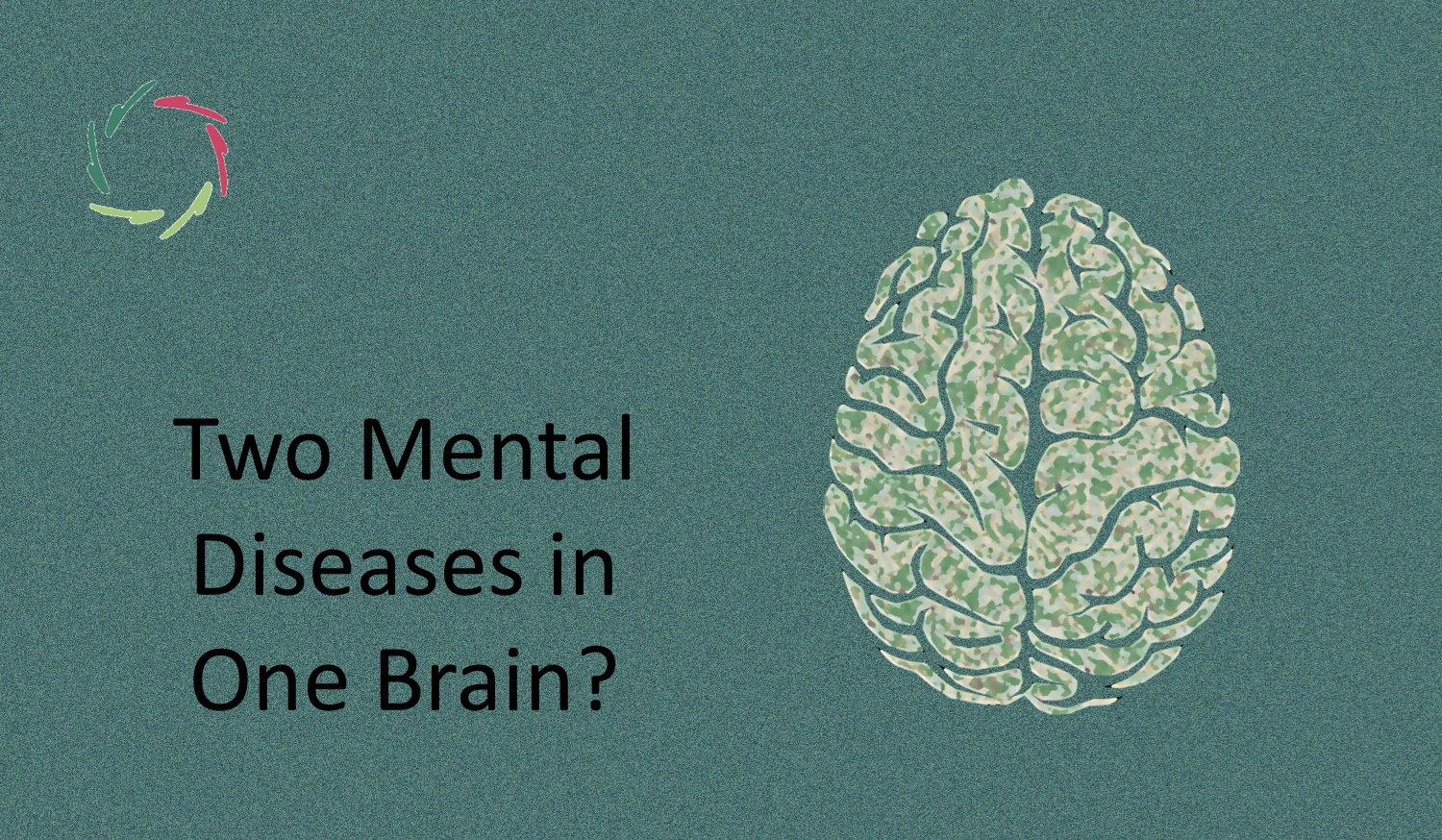26. ‘My pain is real! It’s not mental!’

The outcry in the title is the result of a way of thinking that, sadly enough, still pervades our culture very much. It is as if what is mental cannot be real at the same time. This seems to be very deeply ingrained, so deep that many people don’t even question it at any time in their life.
◊◊◊
And yet. Pain is always real. At the same time, pain is always mental.
◊◊◊
This makes it for many people very difficult to come to grips with their condition. It withholds them from taking responsibility, from searching for solutions or at least help in using their own inner strength. It really pushes people outside themselves, where they become victims of whoever is ready to take advantage of them, ranging from individual charlatans to the pharmaceutical $$$ industry.
◊◊◊
In truth, saying that pain is mental, is no degradation of the pain or the person with pain at all. In truth, there is nothing in it that is even a hint at ‘simulation behavior’ or weakness or ‘only in your imagination’. In truth, there is nothing in it that is related to being guilty of one’s own pain. In truth, that is all very much out of the question. Nevertheless of course I know that these are connotations that, inappropriate as they are, lead a strong life.
◊◊◊
As an individual with chronic pain, one has to stand firm in order to withstand these connotations coming from others as well as from inside oneself. They have the characteristic of still influencing a person even if he has rationally evolved beyond. Even so, asking to do it is asking much. Still I do ask it: don’t let yourself be numbed down! Stand up for yourself and in doing so, for all others who are in your condition!
◊◊◊
Apart from being able to fully respect oneself, there is of course another reward in this. Namely: from the moment that one acknowledges that pain is physical as well as mental ànd always real in any case, one can truly search for the most appropriate way, the really optimal mix to handle it. Painkillers of course may play an important role. The use of inner strength can also be appropriate. You can use inner strength even in heightening the effect of the painkiller itself: heightening as it were its ‘placebo effect’ that then becomes open, without need for the ‘placebo lie’.
◊◊◊
Maybe you can then say, like me after months of excruciating pain (some years ago) without finding any cause and during which I used little medication and quite some autosuggestion: this pain was good. It taught me the most valuable things. I am grateful for it and always will be. Even if it comes back some time, I will not ‘fight’ it at all cost. I will always look at it as a friend.
◊◊◊
Thanks!
◊◊◊


